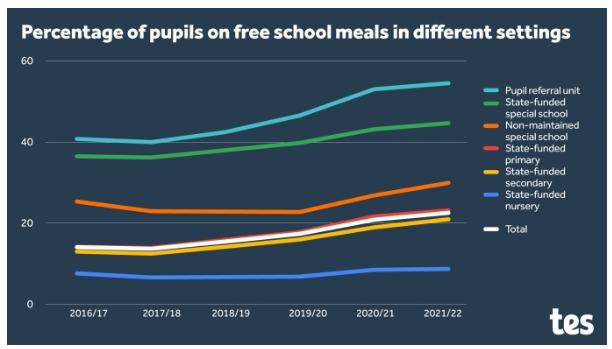
A great & timely read: 'Spin Dictators: The Changing Face of Tyranny in the 21st Century', by Sergei Guriev & Daniel Treisman.
How a new breed of dictators hold power by manipulating information & faking democracy.
Does Britain have a #SpinDictator?
press.princeton.edu/books/hardcove…
How a new breed of dictators hold power by manipulating information & faking democracy.
Does Britain have a #SpinDictator?
press.princeton.edu/books/hardcove…
#THREAD
Over the past 40 years or so, the face of dictatorship has changed a great deal. Could Britain's increasingly antidemocratic & authoritarian Government mean Britain could be joining the likes of Hungary, Turkey & Rwanda in becoming an autocracy?
ft.com/content/ff7574…
Over the past 40 years or so, the face of dictatorship has changed a great deal. Could Britain's increasingly antidemocratic & authoritarian Government mean Britain could be joining the likes of Hungary, Turkey & Rwanda in becoming an autocracy?
ft.com/content/ff7574…
The most notorious tyrants of the 20th century, including Hitler, Stalin, Mao Zedong & Idi Amin, ruled by means of mass violence, cults of personality, rigid ideological conformity, all-encompassing censorship & the exclusion of unwelcome foreign influences from their countries.
Many of today’s strongmen are different. They use violence sparingly. Full censorship & international isolation is common. Instead they work hard at faking democracy, packing the judiciary with supporters, controlling regulatory bodies & manipulating the media & public opinion. 





They are, in short, what Sergei Guriev and Daniel Treisman call “spin dictators”.
In their perceptive, well-researched and entertaining book, Guriev & Treisman, write: “The essence of spin dictatorship is to conceal autocracy within formally democratic institutions.”
In their perceptive, well-researched and entertaining book, Guriev & Treisman, write: “The essence of spin dictatorship is to conceal autocracy within formally democratic institutions.”

The authors are careful to point out that not every contemporary autocrat conforms to their model of “dictatorship lite”. They mention, for example, Syria's Bashar al-Assad & North Korea's Kim Jong Un.
The book was completed before Putin invaded Ukraine, but he features in it.
The book was completed before Putin invaded Ukraine, but he features in it.

Putin’s turn to hard-edged repression can be traced back to the pro-democracy demonstrations that erupted in Russian cities in 2011-12 in protest at rigged elections. Before that, the clothes of a spin dictator fitted the ex-KGB officer quite comfortably.
Guriev and Treisman quote Sergei Markov, a former Putin adviser: “Those problems that can be solved democratically are solved democratically. Those problems that cannot . . . are resolved by other means.” 

'Spin Dictators' develops themes outlined in excellent recent studies such as Archie Brown’s 'The Myth of the Strong Leader', Paul Hollander’s 'From Benito Mussolini to Hugo Chávez: Intellectuals & a Century of Political Hero Worship', & Frank Dikötter’s 'How to Be a Dictator'. 

Guriev & Treisman pay close attention to Chávez, but their wide-ranging survey extends to Lee Kuan Yew, Singapore’s late leader (in their view, the original spin dictator) as well as to Hungary’s Viktor Orbán, Kazakhstan’s former president Nursultan Nazarbayev, & to Putin. 



Kazakhstan's human rights situation under Nazarbayev is uniformly described as poor by independent observers. Human Rights Watch says that "Kazakhstan heavily restricts freedom of assembly, speech, and religion." 

In 2014, the Kazakhstan authorities closed newspapers, jailed or fined dozens of people after peaceful but unsanctioned protests, & fined or detained worshippers for practicing religion outside state controls. 

In 2014, Kazakhstan adopted new criminal & administrative codes, & a new law on trade unions, which contain articles restricting fundamental freedoms & are incompatible with international standards. Kazakhstan is ranked 161 out of 180 countries on the World Press Freedom Index, 

Boris Johnson's "friend" Viktor Orbán, rules Hungary, which suffers endemic corruption, repression of sexual minorities, de facto state control of media, constitutional manipulation & an electoral system designed to give supermajorities whether the votes are there or not. 

Hungary is a showcase for how a reactionary movement in an ostensibly free society seizes control of the state to reshape society in its own image. The goal is the suppression of ALL progressive ideas - what the Right calls 'wokeness'.
https://twitter.com/docrussjackson/status/1533402336843993088?s=20&t=UjZqNvMrec-x0JACp5z2uA
Similarly, the British Government's new favourite country - #Rwanda - was in 2020 ranked by the independent Sweden-based 'Varieties of Democracy Institute', 150th out of 179 countries on its Index of Liberal Democracy - it's clearly #authoritarian. 

To manage their image abroad, authoritarian states like #Rwanda try to advance a favourable narrative about themselves.
They do things like hire PR firms to produce positive content, disseminate #propaganda, & cultivate friendly foreigners who can speak on their behalf. 😬
They do things like hire PR firms to produce positive content, disseminate #propaganda, & cultivate friendly foreigners who can speak on their behalf. 😬

This article by Alexander Dukalskis, an expert on authoritarian states & international human rights, is about the multiple ways that authoritarian states – countries where the leadership maintains power by non-democratic means – manage their image abroad.
theconversation.com/how-authoritar…
theconversation.com/how-authoritar…
What can be done about spin dictators?
“Western Governments & businesses have too often enabled spin dictators to flourish. “Without the help of armies of western lawyers, bankers, lobbyists & other elite fixers, autocrats would have a harder time exploiting the west.”
“Western Governments & businesses have too often enabled spin dictators to flourish. “Without the help of armies of western lawyers, bankers, lobbyists & other elite fixers, autocrats would have a harder time exploiting the west.”
Beyond that, what matters is “the active resistance of the informed” — people living in autocracies who have higher education, good communication skills & international connections - but which the vast majority of the UK & western press & news media only very rarely mention.
They can document abuses, organise protest movements and alert world opinion. “Without the actions of such people, a well-written constitution cannot help much.”
Of course, the more a spin dictator resorts to overt repression, the more dangerous such resistance becomes.
Of course, the more a spin dictator resorts to overt repression, the more dangerous such resistance becomes.

Guriev & Treisman make the case that in autocracies with relatively advanced economies & educated societies, there is reason to hope democratic change will come one day.
Oddly, Guriev & Treisman’s book makes no mention of Modi's India & only briefly mentions Erdoğan's Turkey.
Oddly, Guriev & Treisman’s book makes no mention of Modi's India & only briefly mentions Erdoğan's Turkey.
Like Putin, Johnson's friend & trading partner Erdoğan may no longer qualify as a mere spin dictator, for his methods & style of rule have acquired ever more authoritarian features, including a militarised foreign policy, the longer he has stayed in power.
gov.uk/government/new…
gov.uk/government/new…
This became especially obvious after the attempted coup of July 2016, which Bechev calls “a true life-or-death moment” when Erdoğan seized to punish many thousands of critics, real or imagined, & “achieve a quasi-monarchical status”. Yet familiar warning signs were already there.
One key moment came in a 2008 constitutional court ruling that came close to shutting down Erdoğan’s Justice & Development Party for violating the Turkish state’s secular principles. The AKP exploited this episode to launch a wholesale attack on the independence of the judiciary. 



Crucially, Turkish leftists & liberals raised few objections because they sympathised with Erdoğan’s then relatively progressive policies on seeking EU membership, addressing Kurdish minority rights & standing up to the Kemalist establishment that had held sway since the 1920s. 

Over time, the appeal of Spin Dictators like Turkey's Erdoğan, Hungary's Orban, Brazil's Bolsanaro, Rwanda's Paul Kagame, Trump & increasingly Boris Johnson - who all foreground nationalism - may fade as people grow weary of restrictions on civil liberties in the name of freedom.
Add a #CostOfLivingCrisis, food shortages, spiralling inflation, loss of confidence in the political system & you have a potentially very dangerous conjuncture, which really could go either way: either more democracy & accountability; or more repression.
https://twitter.com/docrussjackson/status/1371265857108738048?s=20&t=zjnZL3CKrPRkhbk_wvMnnw
• • •
Missing some Tweet in this thread? You can try to
force a refresh












